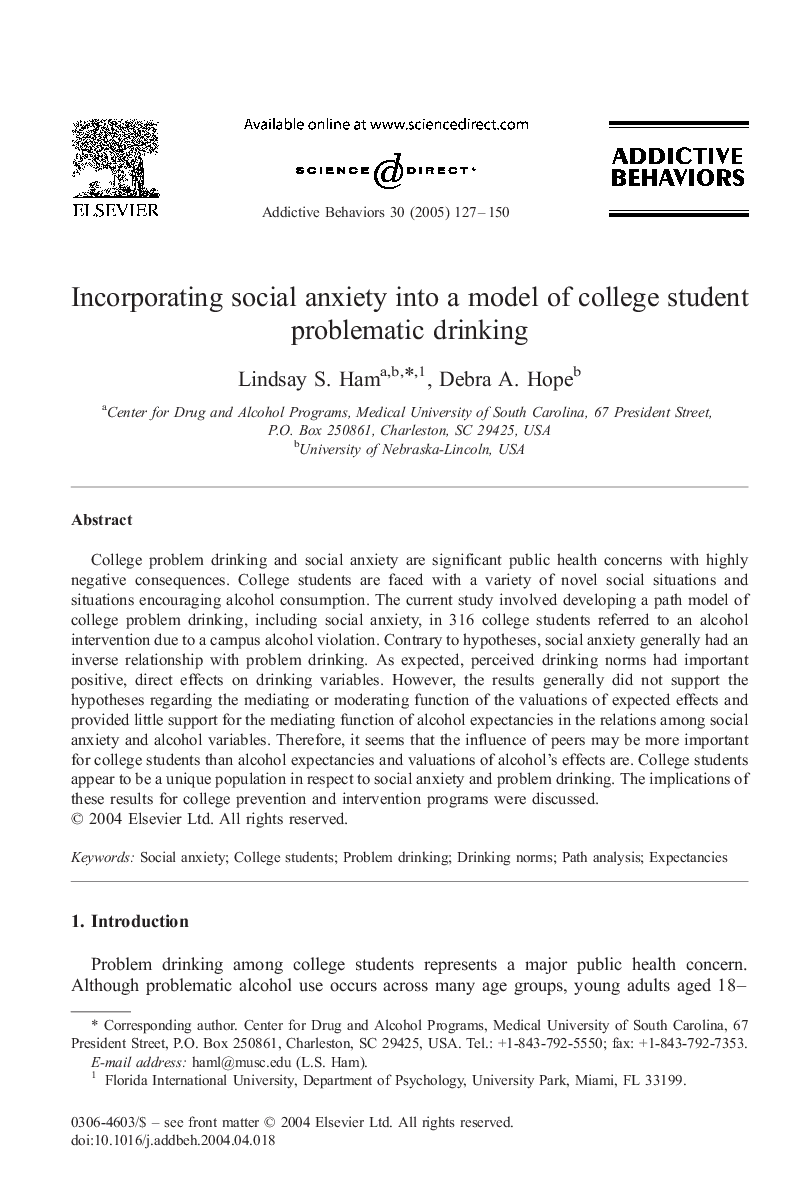| Article ID | Journal | Published Year | Pages | File Type |
|---|---|---|---|---|
| 10443930 | Addictive Behaviors | 2005 | 24 Pages |
Abstract
College problem drinking and social anxiety are significant public health concerns with highly negative consequences. College students are faced with a variety of novel social situations and situations encouraging alcohol consumption. The current study involved developing a path model of college problem drinking, including social anxiety, in 316 college students referred to an alcohol intervention due to a campus alcohol violation. Contrary to hypotheses, social anxiety generally had an inverse relationship with problem drinking. As expected, perceived drinking norms had important positive, direct effects on drinking variables. However, the results generally did not support the hypotheses regarding the mediating or moderating function of the valuations of expected effects and provided little support for the mediating function of alcohol expectancies in the relations among social anxiety and alcohol variables. Therefore, it seems that the influence of peers may be more important for college students than alcohol expectancies and valuations of alcohol's effects are. College students appear to be a unique population in respect to social anxiety and problem drinking. The implications of these results for college prevention and intervention programs were discussed.
Related Topics
Life Sciences
Neuroscience
Behavioral Neuroscience
Authors
Lindsay S. Ham, Debra A. Hope,
